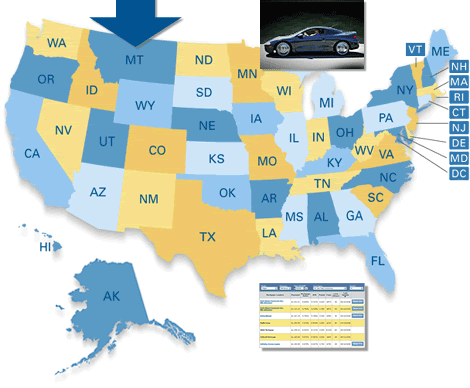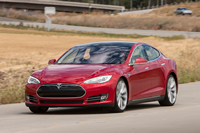Electric Cars: Top 5 Things to Know
by Amy Lillard
(3/23/2013) Electric cars may be the future of the automotive industry. Cars like those manufactured by Tesla represent an exciting new advancement for consumers and the environment. But what do you need to know when considering an electric car? In this series, we examine key information to help you step into the future.
Electric cars work just like electric lamps — plug it in and you’re ready to go. Right? Not quite. Since electric cars are still relatively new to the market as an important option for car shoppers, there is a lot of misinformation and misunderstanding. Here are the key pieces of information you must know if you’re considering an electric car now or in the future.
1. There are different ways to charge. Electric cars need a charge to run, foregoing gas in favor of juice from electricity. A typical full charge will provide energy for up to 100 miles. Manufacturers provide different options when charging:
• Level 1 — using a standard three-prong household outlet provided with purchase, all electric cars can charge like any other appliances in your home. However, this method is slow, requiring multiple hours for a trip beyond a couple miles.
• Level 2 — using special wall-mounted and other equipment unique to electric cars, this provides a faster charge. For an additional cost, consumers can purchase one of these charging stations and receive a full recharge overnight.
• DC — using stations akin to gas pumps, this method provides a super fast electrical refill and a short recharge time. However, only certain electric cars support this type of charging and usually cost more. Plus these public outlets can be difficult to locate.
2. Federal and state incentives are significant. Electric cars are pricier than most cars on the market. But governments have recognized the significant environmental advantages and are providing a $7,500 federal tax credit for purchase. Many states offer incentives as well — California, for example, currently offers a $2,500 credit. Some states also provide special parking and carpool lane privileges. Finally, there are also government subsidies to offset the cost of Level 2 charging stations.
3. Costs are actually lower. Electric cars have a higher price tag for purchase than regular gas-fueled cars. But you can drive an electric car for around three to four cents per mile, compared to eleven cents per mile for gas-powered cars. And that doesn’t count the maintenance costs for normal cars.
4. There are less maintenance needs. Typical cars have thousands of parts comprising the engine and transmission. They need regular oil checkups, transmission fluid changes, and a number of other routine maintenance activities, and of course are subject to major mechanical breakdowns and costly repairs. In contrast, electric cars have motors with few parts and no emissions equipment. The primary maintenance needed will be battery replacement after 7-10 years.
5. Less emissions. While electric car commercials may overstate the case with “zero emissions” claims, these vehicles do feature drastically reduced emissions that pollute less than diesel and gas cars.
Other related articles:
Automotive Loans: Determining a Down Payment
Automotive Loans: The Truth About "Add-Ons"
Automotive Loans: Negotiating a Loan with a Dealer
Automotive Loans: How Much Car Can You Afford?
Automotive Loans: Buying Vs Leasing
Automotive Loans: Applying for a Car Loan
High MPGs and low auto loan rates can save you thousands of dollars
Research your options when shopping for an auto loan
Special Report: Hitting the Brakes on Auto Dealer Loans
Buying vs. Leasing: A Comparison
Closed End Lease or Open End Lease
New and Used Auto Loan Rates
Choose Your State Below

Start by selecting your state

Amy Lillard
The ERATE® Resource Guide to No-Closing-Cost Refinancing
Principal Reduction: New Programs, More Controversy
Understanding Mortgages: Mortgage Paperwork
Understanding Mortgages: Types of Mortgages
Understanding Mortgages: How to Get a Mortgage
Understanding Mortgages: Buy or Rent?
Understanding Mortgages: Working with a Real Estate Agent
Understanding Mortgages: Working with a Real Estate Agent

Automobile Buying/Financing
5 Steps to Find the Perfect Car
Auto loan defaults to rise 7 percent in 2010
Auto Show Season Tips for Buyers
Consumer Reports suspends recommendations for Toyota's recall models
When is the Best Time to Buy a New Car?
Making a Vehicle Purchase? Enjoy These Helpful Tips
Chances are, your next car will be used. Drive a hard bargain
What your car is really saying
2012 President's Day auto sales among best ever
Special Report: Hitting the Brakes on Auto Dealer Loans
Auto Insurance
Buying Ins - Shopping for Insurance
Best Car Insurance Plan for You


